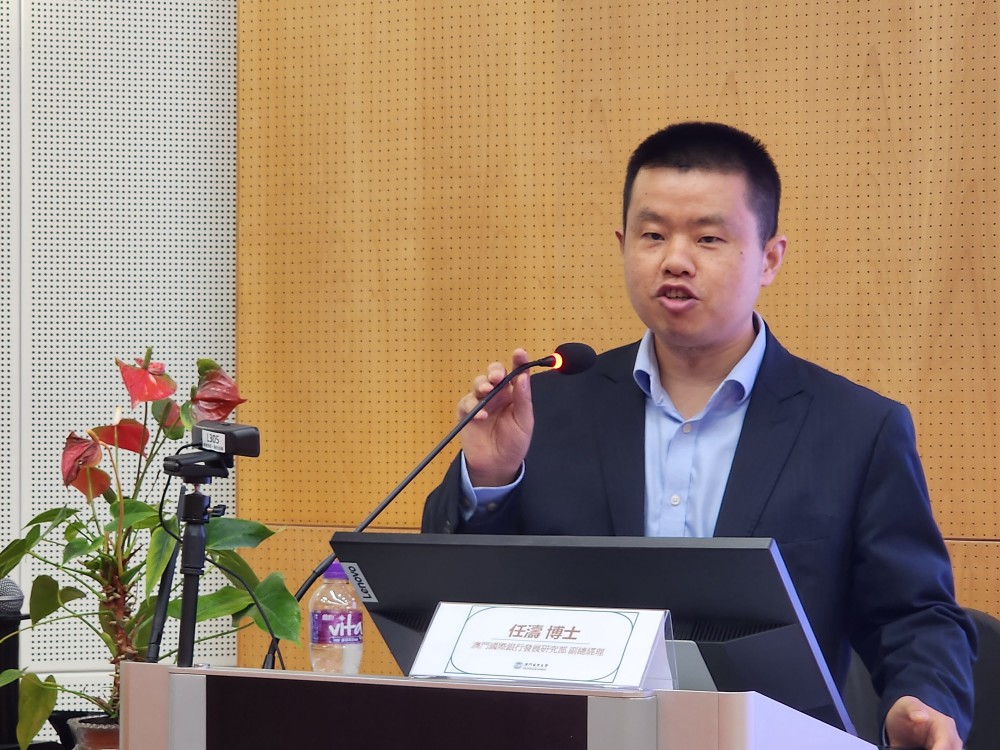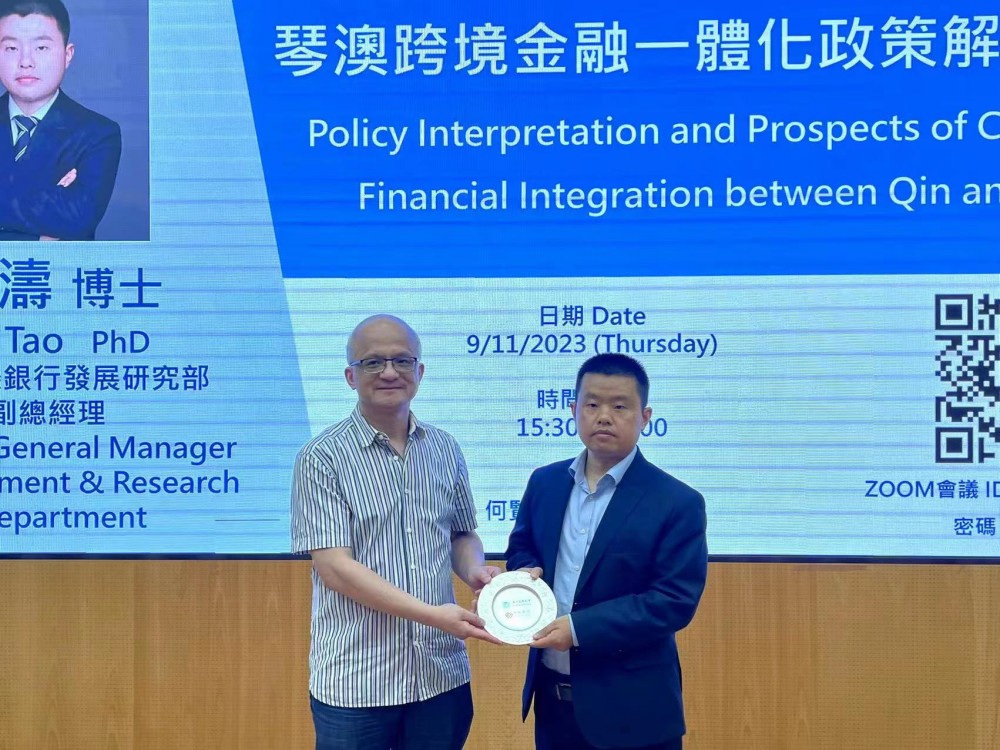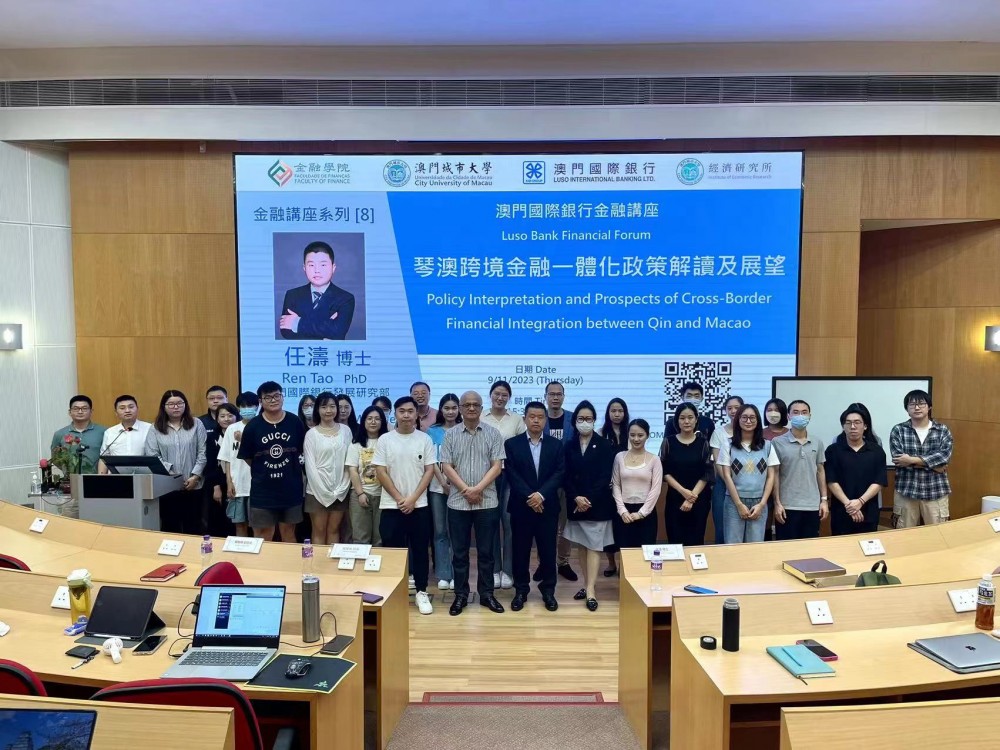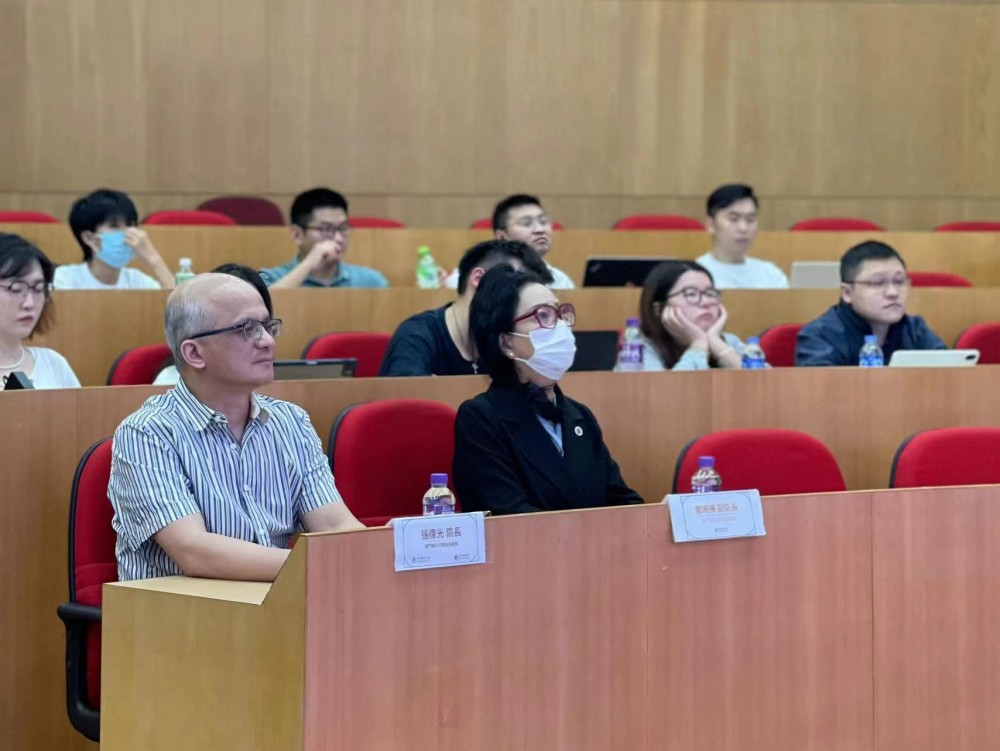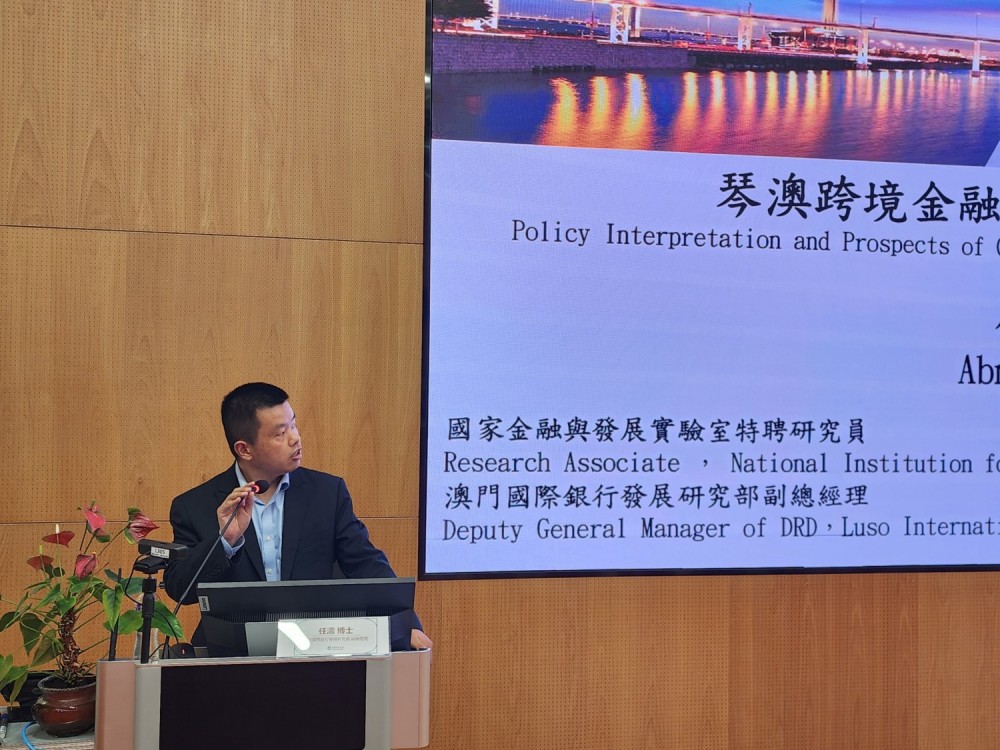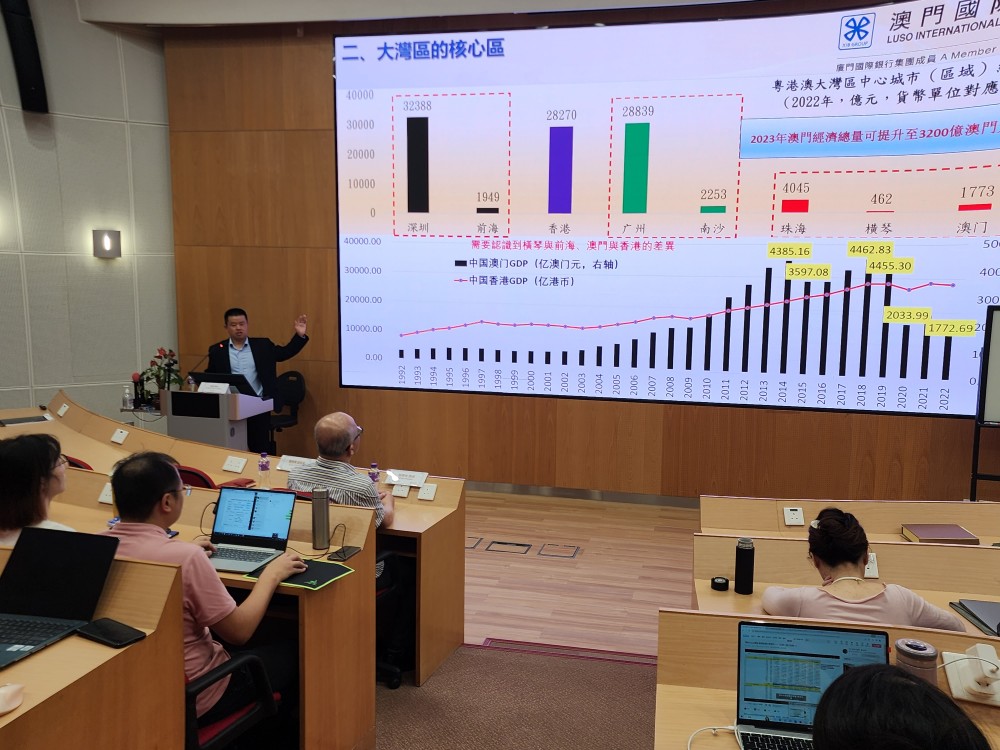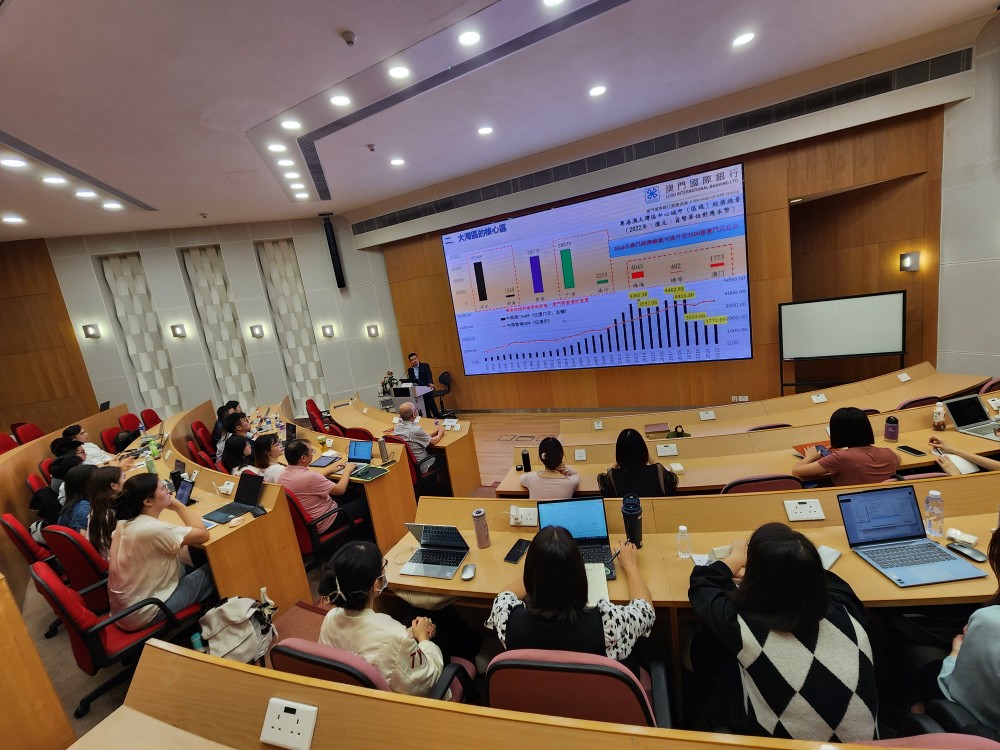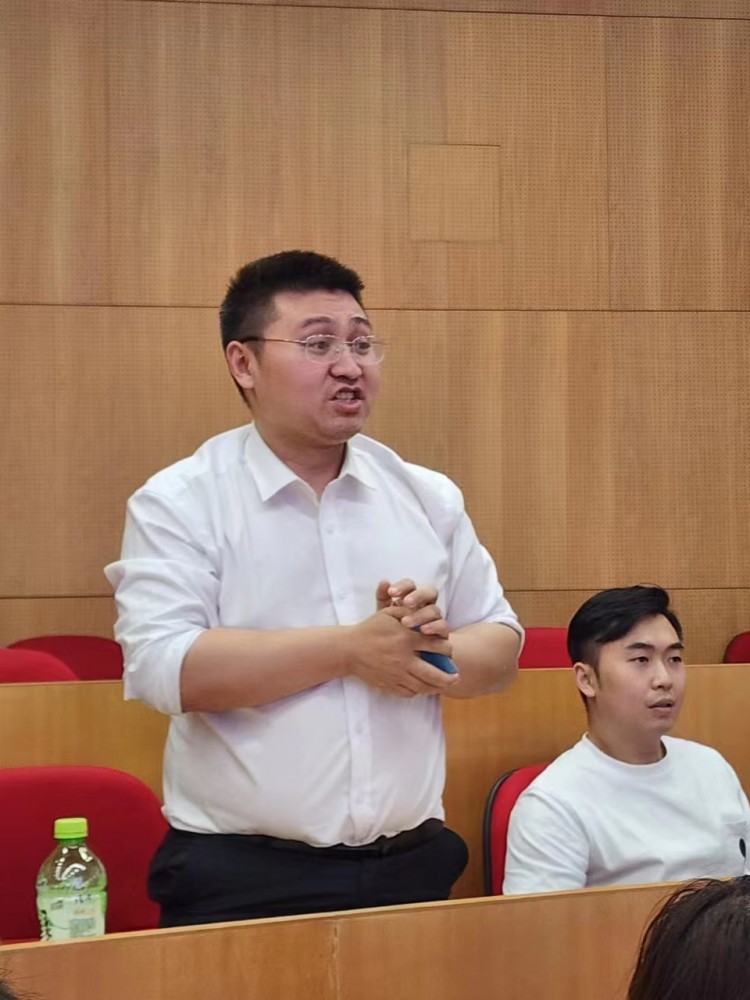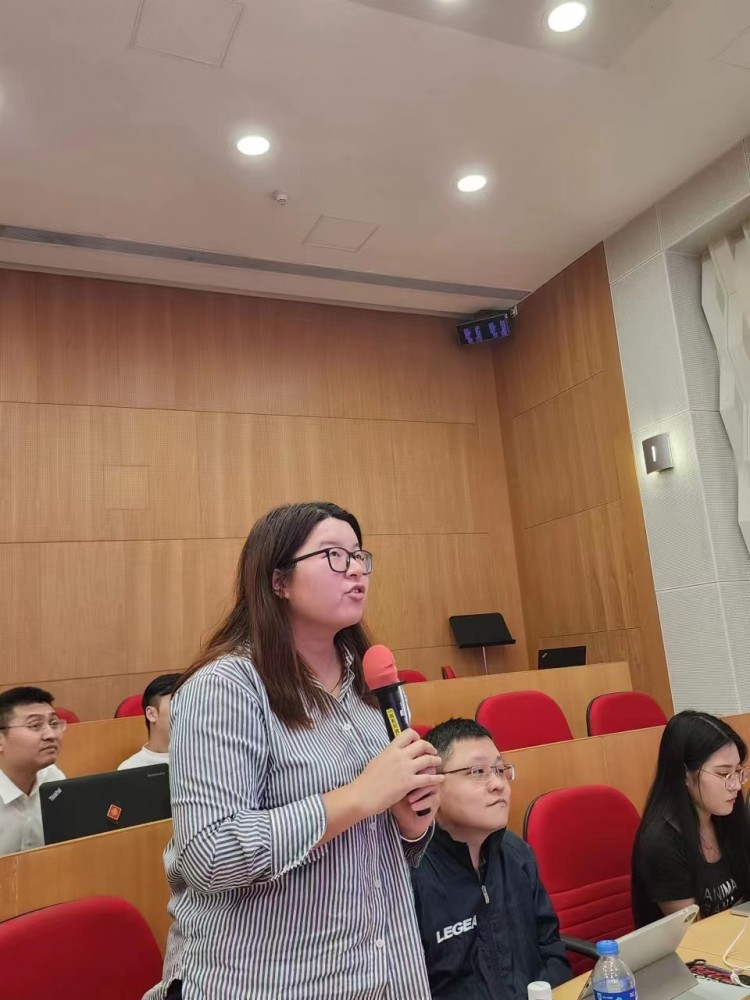On November 9, 2023, the Faculty of Finance at the City University of Macau hosted the 8th installment of its Finance Seminar Series, titled " Policy Interpretation and Prospects of Cross-Border Financial Integration between Qin and Macao ". The distinguished guest speaker for this seminar was Dr. Ren Tao, a specially-appointed researcher at the National Laboratory of Finance and Development and Deputy General Manager of the Research Department at Macau International Bank. The theme of the lecture was "Policy Interpretation and Prospects of Cross-Border Financial Integration between Qin and Macau." Guests attending this seminar include the Dean Adrian Cheung and Associate Dean Eva Khong of Faculty of Finance, City University of Macau.
Dr. Ren Tao began by providing a brief overview of the overall financial industry in the Greater Bay Area. With the support of a series of policy initiatives, Hong Kong, as an international financial center, and Macau, as an open economy, have the potential to lead the integrated development of the Greater Bay Area, integrate into the global free port, connect with the Asia-Pacific region, and stimulate the growth of the financial markets in Hong Kong and Macau, addressing their respective market deficiencies.
Dr. Ren Tao then delved into an in-depth interpretation of various policies related to the development of the financial sector in the Greater Bay Area. He believed that the planning and construction initiatives outlined in these policies would clarify the positioning of the financial sector in Qin and Macau. The objectives include the development of bond markets, offshore RMB markets, asset and wealth management, and equity investment businesses. Macau's role as a financial service platform for Portuguese-speaking countries would be leveraged to develop cross-border finance, specialized finance, and modern finance, enhancing the breadth, depth, and financial radiation capabilities of Macau's financial market within the Portuguese-speaking countries system. Additionally, Dr. Ren also mentioned the concept and policies related to the electronic fence, which he believed would serve as an important bridge for the integration of Qin and Macau, although it is still in the development stage.
Regarding the prospects of cross-border financial development between Qin and Macau, Dr. Ren pointed out that in the current globally unstable economic and financial situation, safety is more important than returns, and high-quality investment targets with high certainty and superior qualifications are becoming increasingly scarce. The interconnected financial systems in the Greater Bay Area can provide global investors with high internationalization, high flexibility, and a variety of currency investment opportunities.
There are both cooperative and competitive challenges in cross-border financial cooperation between Qin and Macau. Firstly, the differences in financial systems and legal regulations between the two regions may lead to friction and adjustments during the cooperation process. Dr. Ren Tao analyzed that to construct an integrated system between Qin and Macau, relevant departments still need to establish supporting laws, improve regulatory guidelines, and set business norms to facilitate the development of the bond market. This includes attracting mainland China, especially the Greater Bay Area and Portuguese-speaking countries' enterprises to issue debt and raise funds in Macau, as well as attracting more qualified wealth management and financing leasing companies to establish themselves in Macau. Additionally, competition in the international financial market cannot be ignored. Hong Kong, as an international financial center, has overlapping characteristics and positioning, which to some extent, also competes for a share of cross-border financial business in Qin and Macau. Therefore, Macau needs to enhance its competitiveness by strengthening cooperation, improving financial market openness, and innovation capabilities.
Furthermore, to advance cross-border finance, Macau should actively leverage its advantages as a platform for Portuguese-speaking countries, such as its legal system, tax incentives, etc., to strengthen the linkage between cooperative area financial markets. It should also explore the establishment of an electronic network system and promote the early realization of high openness in the cooperative area financial markets. Macau, with its unique position and advantages, is continuously growing in offshore finance and cross-border financing. Through the integration of Qin and Macau, mutual connectivity with Hong Kong and Macau, and the overall development of the Greater Bay Area, Macau hopes to further enhance its influence and competitiveness on the international financial stage, bring more investment opportunities and development prospects to the Greater Bay Area, and promote regional economic prosperity and stability.
Lastly, during the Q&A session, students actively shared their insights and raised questions to the speaker, and Dr. Ren Tao provided valuable explanations. The seminar not only enriched the students' understanding of the cross-border financial system between Qin and Macau but also deepened their awareness of the current development situation and policies in the Greater Bay Area's financial industry. The City University of Macau expresses gratitude to Dr. Ren Tao for his excellent presentation and looks forward to the next finance seminar.



